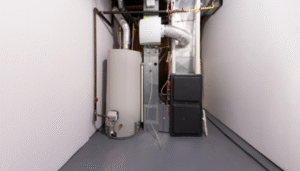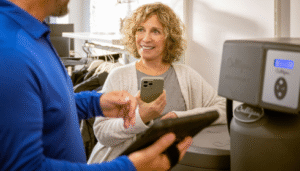If you’ve ever been involved in a legal dispute that escalated to court, you already know how tangled and unpredictable litigation can get. Facts blur, emotions run high, and everyone’s scrambling for clarity. In these moments, litigation expert witnesses often step in — not as magicians or miracle workers, but as the voices of reason grounded in deep, specialized knowledge. They’re the bridge between complex evidence and courtroom understanding, helping judges and juries see the truth through the fog of opinion.
Why Expert Witnesses Matter More Than Ever
We live in an era where data, science, and technology shape nearly every corner of life — from medicine to finance, from construction to cybersecurity. Legal cases now revolve around details that most people can’t easily grasp without guidance. That’s where expert witnesses earn their stripes.
Whether it’s a structural engineer explaining why a building collapsed or a forensic accountant tracing hidden assets, these professionals translate complexity into clarity. Their opinions can tip the scales in high-stakes litigation, offering credibility that pure argument can’t achieve.
But beyond the courtroom, they also help lawyers craft smarter strategies, challenge faulty claims, and understand where a case might unravel long before a verdict is reached.
Inside the World of Litigation Experts
The term “expert witness” might sound sterile, but behind it lies an ecosystem full of intense preparation, high-pressure testimony, and ethical responsibility. Every opinion must rest on verifiable evidence, not emotion or bias. One slip, and an opposing counsel will pick it apart on cross-examination.
The good ones don’t just memorize facts — they tell stories through data. They know how to connect the technical dots in ways a layperson can understand. In essence, their credibility isn’t built just on degrees or titles but on how well they communicate truth under scrutiny.
That’s the heart of what makes litigation legal insight so powerful — it’s not just about knowing the law, but understanding how expert knowledge interacts with it. Legal insight comes alive when it’s informed by professionals who can explain, defend, and contextualize their expertise without losing the human touch.
The Growing Demand for Specialist Knowledge
As disputes get more technical, the demand for niche experts keeps climbing. Environmental scientists testify in pollution cases, IT forensics specialists weigh in on data breaches, and medical professionals outline the effects of misdiagnosis or malpractice.
This trend has reshaped how law firms prepare for trial. No longer is it enough to hire one generalist expert and hope for the best. Now, firms assemble multidisciplinary teams to dissect evidence from every possible angle. That’s where the right referral networks make all the difference.
When law firms or corporations don’t have the time or reach to vet experts directly, they turn to expert witness referral services — organizations dedicated to connecting attorneys with vetted professionals. These services streamline the process, matching cases with specialists whose backgrounds, qualifications, and courtroom experience align perfectly with the legal challenge at hand.
The Fine Line Between Expertise and Advocacy
There’s a misconception that expert witnesses exist to “win” cases. The reality is more nuanced. Their credibility depends on independence — they’re not there to serve as hired guns for one side or the other. The moment they appear biased, their testimony loses weight.
It’s a constant balancing act: remaining objective while also delivering testimony that’s clear and persuasive. That tension is what makes the best experts invaluable. They don’t just recite technical jargon; they build trust by presenting complex truths in relatable terms.
You might say the true skill lies not in what they know but in how they share it.
What Makes a Great Expert Witness
Not every seasoned professional can thrive in court. The best expert witnesses combine three traits — authority, communication, and composure. Authority comes from years of specialized experience. Communication ensures their testimony resonates with a jury of non-experts. And composure… that’s the ability to stay calm under cross-examination when every word feels like a trap.
Their job isn’t to argue, but to clarify. They don’t take sides; they illuminate the facts.
How Expert Witnesses Shape the Outcome
A strong expert can redefine the entire direction of a case. They can dismantle weak claims, strengthen negotiation positions, or even prevent a trial altogether by influencing early settlement discussions.
In some cases, their testimony is the turning point — the moment when the jury finally “gets it.” And even when they’re not on the stand, their written opinions and analyses often serve as the backbone of the attorney’s argument.
Think of them as the translators of truth, converting specialized language into something justice can understand.
The Bigger Picture
Litigation is, at its core, about uncovering what really happened — and expert witnesses are among the few who can guide the court toward that truth. Their insights provide a layer of objectivity that’s vital in a world where everyone has an opinion but few have proof.
Behind every persuasive closing argument, there’s usually an expert who helped shape it. Behind every dismissed claim, a specialist who found the flaw. They don’t just appear in court; they leave fingerprints all over the process of justice.
Final Thoughts
When you step back and look at the evolving landscape of modern litigation, one thing becomes clear: expertise isn’t just helpful — it’s essential. The courtroom is no longer a place for gut feeling or vague persuasion; it’s a forum where knowledge and communication collide.
Whether you’re a lawyer, a business owner, or someone just curious about how complex disputes are resolved, it’s worth appreciating the invisible army of experts who make fair judgment possible.
After all, behind every verdict lies a trail of research, analysis, and testimony that few ever see — and it’s often the quiet power of these experts that ensures justice isn’t just served, but understood.


